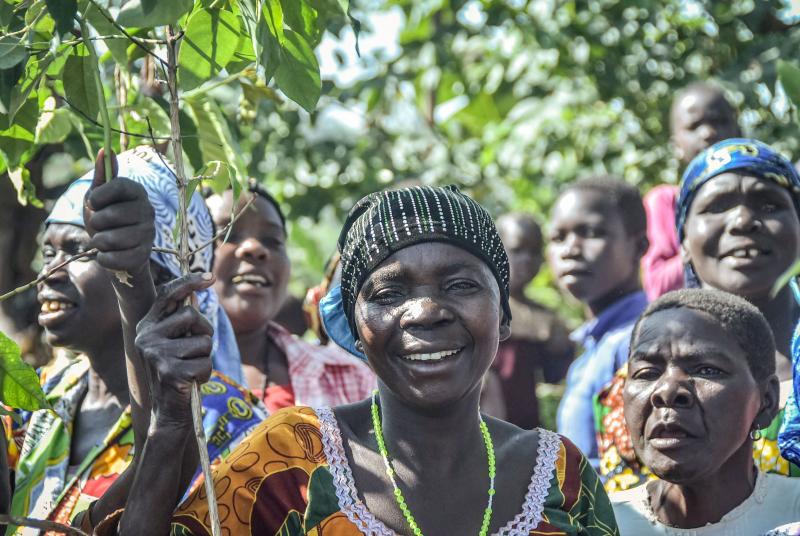

Glasgow, 2 November 2021 - President Félix Tshisekedi of the Democratic Republic of Congo (DRC) and Prime Minister Boris Johnson of the United Kingdom on behalf of the Central African Forest Initiative (CAFI) today endorsed an ambitious 10-year agreement (2021-31) to protect the Congo Basin rainforest – the world's second largest.
With its forests, water and mineral resources, the Democratic Republic of Congo is a genuine "Solution Country" to the climate crisis. To protect our forest and promote its sustainable management, our priority, backed by this new partnership, is to strengthen governance and transparency across all land use sectors. The Partnership will also support our ambition to respond to the dual challenge of food security and climate change through sustainable agriculture, primarily in the savannahs”, said Président Tshisekedi.
All sectors of the DRC’s economy have joined in this landmark agreement to undertake actions that could change land use practices that date back millennia. These concerted efforts are essential in a country the size of Western Europe with one of the lowest human development indices in the world, and that loses nearly half a million hectares of forest every year.
Through this new multi-year partnership, the DRC aims to first cap forest cover loss at its 2014-2018 average and ensure that deforestation continues to decline. The partnership will also promote the regeneration of 8 million hectares of degraded land and forests, and place 30% of national areas under a protection status, including areas where local communities undertake efforts to manage forests sustainably.
Lord Goldsmith, UK Minister for Pacific and the Environment declared “the UK is proud to be signing this ambitious ten-year Letter of Intent with the Central African Forest Initiative alongside the Democratic Republic of the Congo. This is a crucial step forward in our efforts to protect and restore the country’s precious forests, as well as providing sustainable livelihoods an alleviating poverty”.
Exacerbated by extreme poverty, forest loss in the DRC is mainly due to a growing population lacking livelihood opportunities outside the forest and relying mostly on fuelwood for cooking, all that in the absence of land use planning. Any solution proposed to stem forest loss in the DRC must therefore focus on rural development, poverty reduction, and better food security.
CAFI's support of $500 million over the first five years more than doubles the $190 million provided under the first Letter of Intent (2015-2020), whose objectives were delivered through a portfolio of over twenty programmes that supported large-scale reforms in agriculture, land-use planning and land tenure; directed agricultural activities towards tens of thousands of hectares of savannahs; and improved the livelihoods of hundreds of thousands of people.
The announcement at COP26 concludes months of discussions between CAFI donors and DRC Ministers, in which national civil society was fully involved. In a communiqué, Guy Kajemba, National coordinator of the umbrella civil society organisation “Groupe de Travail Climat REDD+ Rénové” declared: "We welcome this renewed partnership. It will help us closely monitor commitments taken, including the steps that will lead to a responsible and progressive lifting of the moratorium, the publication of contracts in all sectors linked to the use of land and the commitment taken by President Tshisekedi to cancel all dubious contracts of forest concessions. We are particularly encouraged by the mobilisation of all sectors committed to protect our High Value Forests and peatlands.”
TWELVE CONCRETE OBJECTIVES OF THE DRC-CAFI LETTER OF INTENT 2021-2031